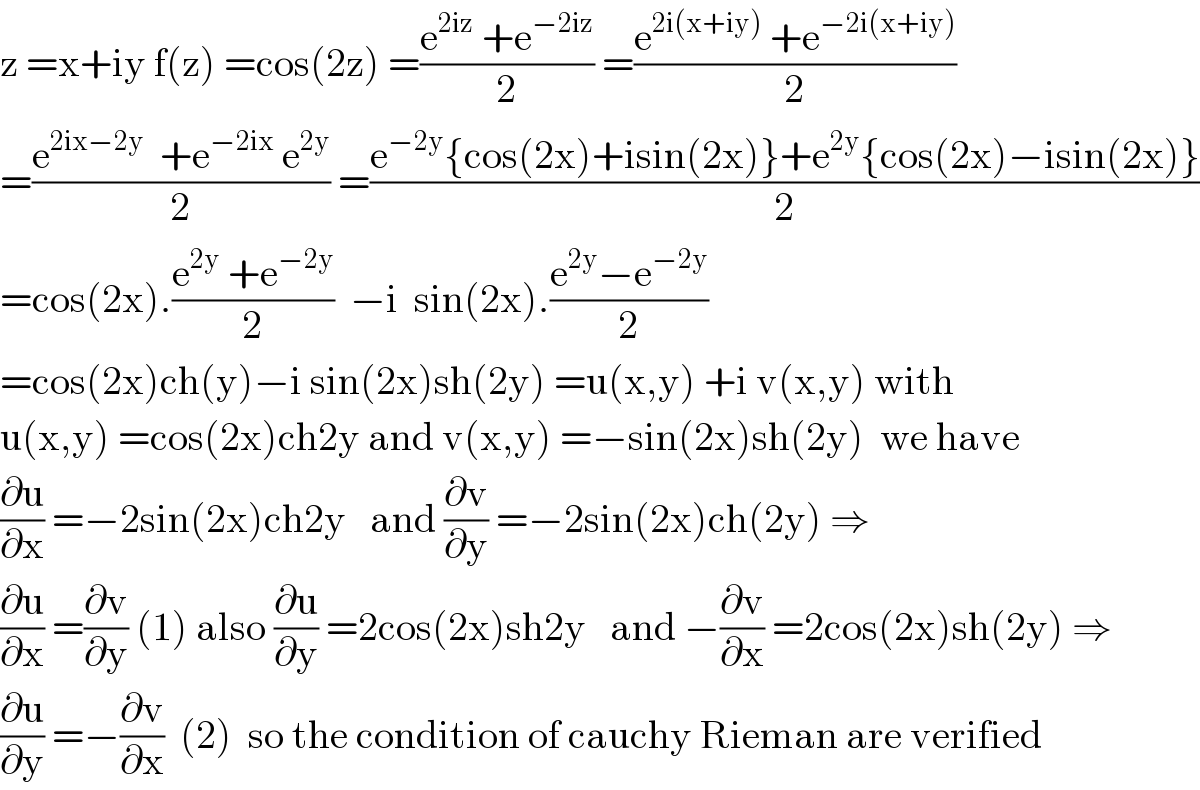
Question and Answers Forum
Question Number 113346 by mohammad17 last updated on 12/Sep/20

Answered by mathmax by abdo last updated on 13/Sep/20

Commented by mohammad17 last updated on 13/Sep/20

| ||
Question and Answers Forum | ||
Question Number 113346 by mohammad17 last updated on 12/Sep/20 | ||
 | ||
Answered by mathmax by abdo last updated on 13/Sep/20 | ||
 | ||
| ||
Commented by mohammad17 last updated on 13/Sep/20 | ||
 | ||